In accordance with the Afe Babalola University Energy Conservation Policy, which was reviewed in 2023, and as part of the ongoing Energy and Utility Campus Master Planning efforts, the Directorate of Project and Physical Planning, in collaboration with the Department of Works and Services, is upgrading all existing buildings. The goal of these upgrades is to make them climate-smart, energy-efficient, and to ensure they achieve the highest LEED (Leadership in Energy and Environmental Design) ratings.
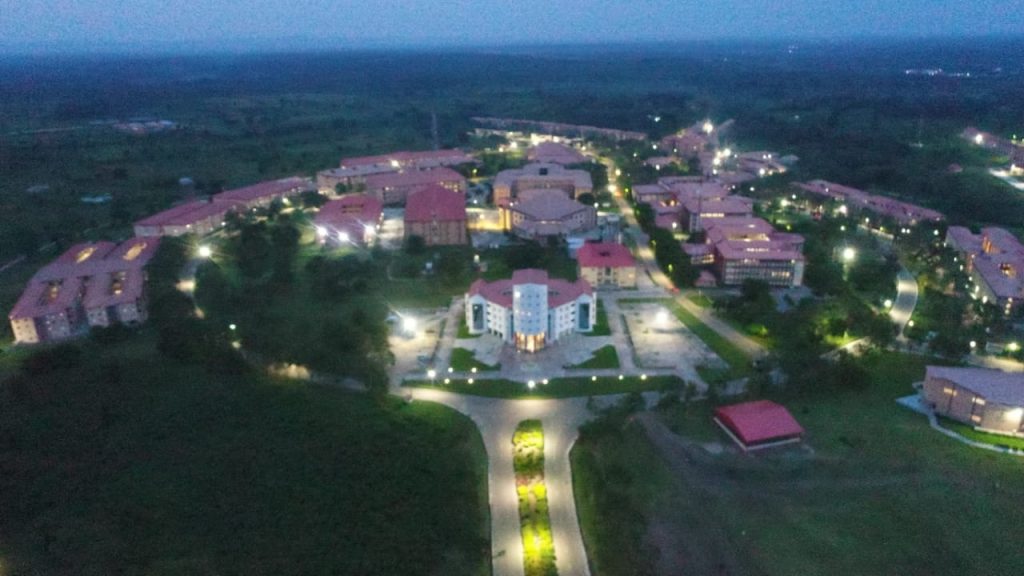
In 2023, the University has significantly ramped up its commitment to sustainability by implementing LED lighting systems across all new buildings on its various campuses. This initiative reflects the University’s dedication to energy efficiency and environmental responsibility.
As part of this effort, existing lighting systems are being systematically upgraded to LED technology in a phased manner. This year marks a notable milestone, as all remaining incandescent bulbs in the residential buildings have been successfully replaced with energy-efficient LED bulbs. This transition not only reduces energy consumption but also enhances the quality of light in these spaces.
In addition to the upgrades in residential areas, the University is also converting street and security lighting to solar-powered systems, thereby utilizing renewable energy sources to improve safety and reduce electricity costs. Furthermore, in facilities that were not updated in 2022, the University has installed 25W and 9W LED lamps in the remaining toilets, hostels, and restaurants, ensuring that all areas are benefiting from modern lighting technology.
To further promote energy efficiency, the University is incorporating natural air-cooling systems and maximizing the use of natural lighting in its new architectural designs. These strategies aim to minimize overall energy consumption in campus buildings, creating a more sustainable and comfortable environment for students, staff, and visitors alike.
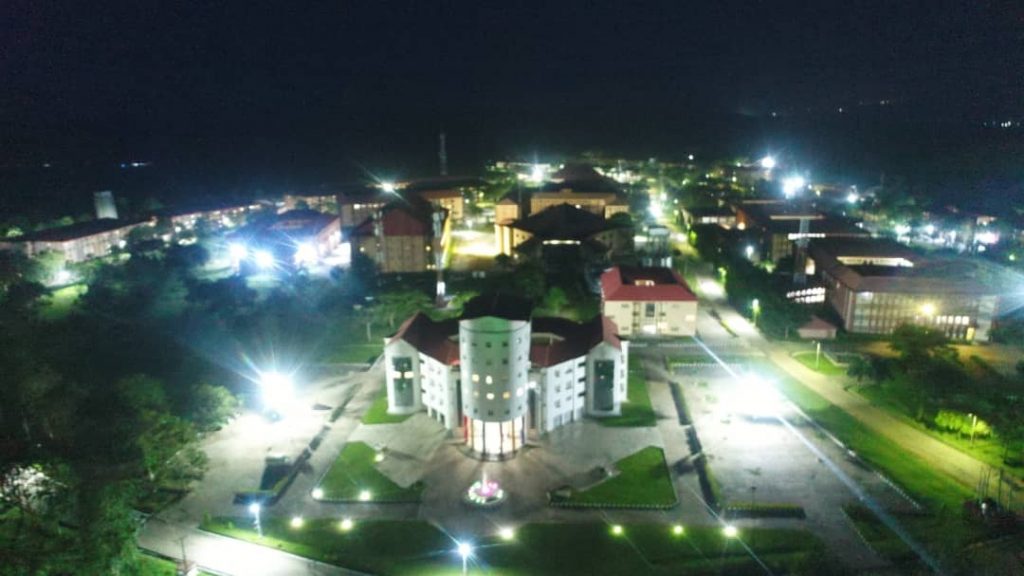
In 2023, Afe Babalola University continued to implement its strategy to reduce utility bills significantly, particularly in light of the average monthly electricity cost of approximately thirty-five million Naira. Improving the energy efficiency of all buildings on campus is essential and critical for this effort.
The Directorate of Projects and Works & Services Department of the University reviewed and assessed the structure and policies established in 2020 and reviewed in 2021, 2022 and 2023 to ensure full implementation and compliance by stakeholders. The key initiatives include:
- Metering: Installing meters in all new and existing buildings—such as offices, student residences, staff housing, auditoriums, and commercial centers—to measure and monitor energy consumption.
- Lighting Upgrades: Phasing out high-energy consumption lighting fixtures in all existing buildings and using only LED lighting in new constructions. This change has been proven to reduce energy usage by at least 88% in each building.
- Smart Controls: Gradually converting the university’s conventional streetlights and other occasional-use spaces, like conference and seminar rooms, to smart automatic control systems. This transition will help intelligently manage streetlights and reduce energy consumption.
- Ventilation Design: Choosing appropriate ventilation designs to improve air quality and reduce heat, thereby decreasing the energy required for cooling.
It’s important to note that monthly energy expenses have been reduced by another 53% in the last quarter of 2022, compared to a reduction of 89% in the third quarter of 2021. This progress is attributed to the continuous improvement in energy consumption and the efficiency strategies, policies, and plans adopted by Afe Babalola University and reviewed in 2023.
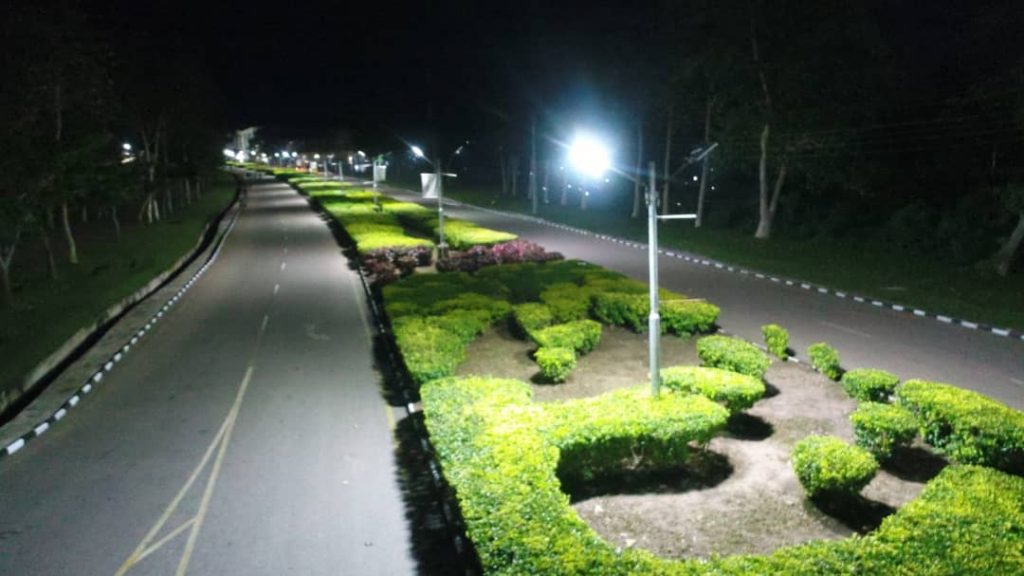
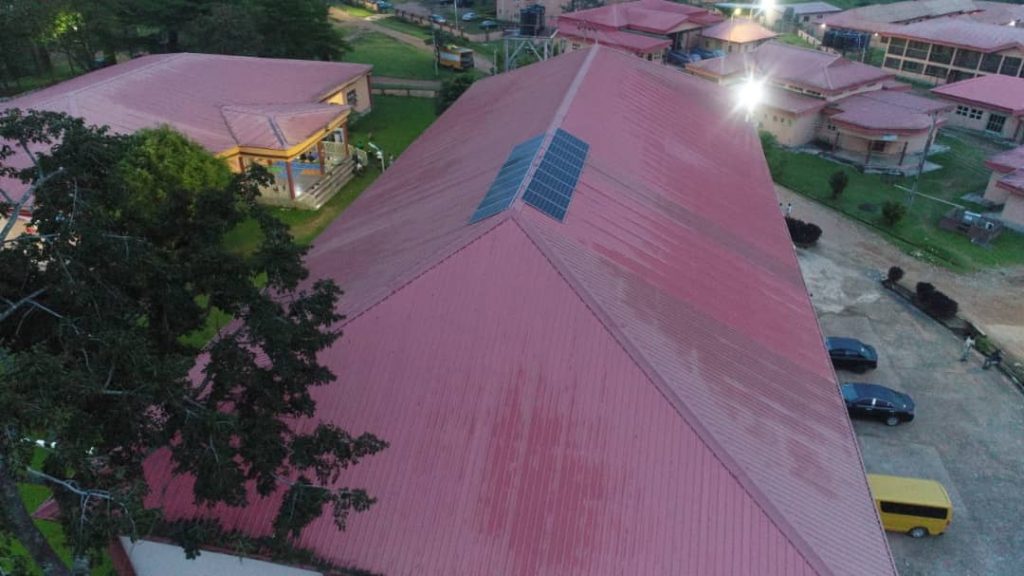
Related Posts:
https://www.igi-global.com/chapter/energy-audit-and-reliability-analysis-of-afe-babalola-university-power-distribution-system/256676

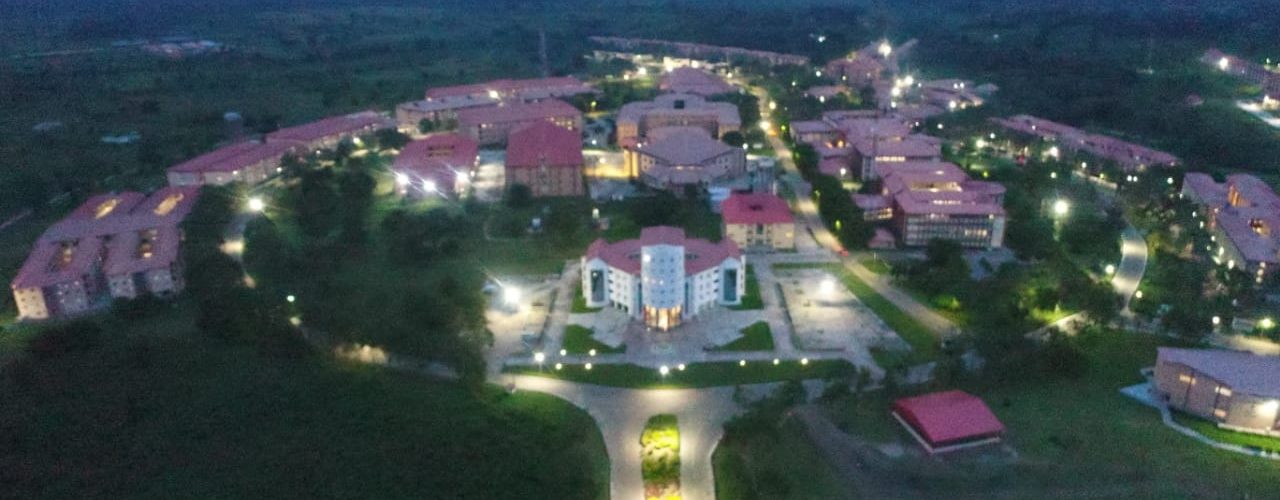

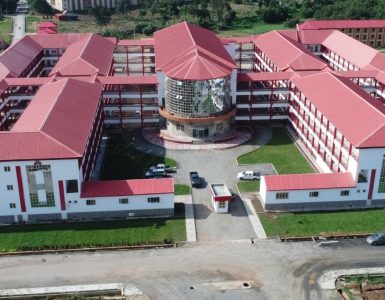












Add comment